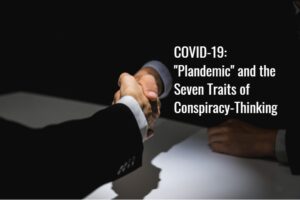By Aly Kamadia, Editor-In-Chief, iDose
*Interested in Kamadia’s thoughts? Subscribe for free and get this iDose newsletter delivered directly to your inbox whenever our new monthly issue is released (please find form below)
“In addition to a pandemic, this decade has already been overshadowed by the return of great power rivalries.”
This observation is made by Joschka Fischer, former German foreign minister and vice chancellor, in a must read featured in iDose this month.
Fischer’s piece highlights important observations vis-à-vis American foreign policy, while arguing that the US should refrain from moving towards a posture of isolationism.
There is much to learn and agree with in his analysis, though I would offer a few comments (don’t worry, none of them are spoilers).
First, while it may be true that the US wishes to significantly disengage from the Middle East, describing America as having an “inclination toward self-isolation” is excessive.
To be sure, there is no fierce debate among American elites between isolationists and non-isolationists. Rather, the US foreign policy community seems to be stuck in a debate between engagement versus hegemony – the latter of which is untenable given the limits of US power in an increasingly multipolar world (Fischer acknowledges these limits).
Which leads to a second comment.
Fischer notes that, “America is the only global or regional power capable of guaranteeing regional peace – or at least of suppressing all-out-war”. This is a vital observation. Should the US continue its ‘pivot to China’, as is likely, it mustn’t allow vacuums around the globe to be filled by actors operating against American interests.
While it’s impossible to offer a specific foreign policy recipe in a short article or newsletter, in my opinion, American planners would be well advised to apply a strategy consistent with the core ideas of offensive and defensive realism – as described by relevant scholars, and not typical politicians who often have a tendency to call themselves ‘realists’.
Finally, the impression that one gets from Fischer’s piece is that ‘soft power’ (i.e., attracting other states’ behavior with one’s culture or political values) isn’t significant in the geopolitics of the day. This position is correct, as there isn’t convincing evidence that the world outside of America and liberal democracies is rushing to emulate the political system of government that was supposed to mark the ‘end of history’.
Though even if ‘hard power’ (i.e., economic and military might) defines the game, it’s worth keeping in mind that the internal threat to US democracy is still alive. Its heart remains beating subsequent to President Trump’s 2020 electoral loss and the January 6th attacks on Capitol Hill.
Insofar as this threat and its consequences impair US foreign policy making, America must prioritize ‘getting its house in order’ – as the cliché goes. (Of course, this is not to say that it can’t have other priorities at the same time.)
That said, anyone interested in international affairs ought to read Fischer’s piece, along with the other excellent articles we feature this week. One includes my own, titled, Do Canadians hate Muslims?
ps. Last month’s Covid-19 article on the delta variant is still on our main webpage
pps. The article that I proposed writing on how to change the world will be postponed until a later issue (I was in the mood to write at timely piece on Canadian Islamophobia)
Stay safe,



